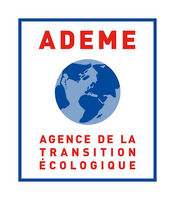Search eceee proceedings
High consumers of energy and resources and the work of being wealthy: towards a research agenda
Panel: 1. Dynamics of consumption: less is more?
This is a peer-reviewed paper.
Authors:
Anna Hawkins, Sheffield Hallam University, United Kingdom
Aimee Ambrose, Sheffield Hallam University, United Kingdom
Stephen Parkes, Sheffield Hallam University, United Kingdom
Yael Arbell, Sheffield Hallam University, United Kingdom
Alvaro Castano Garcia, Sheffield Hallam University, United Kingdom
Mia Rafalowicz-Campbell, Sheffield Hallam University, United Kingdom
Abstract
High consumers of energy and resources in domestic settings make a disproportionately greater impact in terms of their greenhouse gas (GHG) emissions and resource use, with the richest 10% being responsible for around 49% of carbon emissions (Kartha et al, 2020). Moreover, the highest consumers also act as trend-setters and aspirational peers, thus driving high consumption more widely within society. As such, efforts to confine global warming to 1.5 degrees Celsius will be unworkable unless the wealthy change their lifestyles (Gore et al, 2021). We know that the rich have caused climate change (Weidmann et al, 2021) yet there have been limited attempts to define high consumption or what constitutes too much. There also appears to be very limited political will to tackle what might be regarded as excessive consumption and we also find limited direct interest in the issue within research and academia, with attention focussed instead on low or under consumers and more abstracted debates about sustainable consumption. Our work seeks to help address the research gap around high consumption chiefly through the development of deep qualitative methodologies that seek to understand the socio-cultural and structural factors that sustain high consumption. Focussing on the question of: ‘why is it so hard to consume less?’, our paper reports upon a state-of-the-art review of literature, spatial mapping of consumption data and stakeholder interviews (in the UK) which highlight the need for a greater focus on high consuming households. We also discuss how this work has informed the development of an innovative methodology for exploring the lived experiences of this elusive and hard to reach group, which utilises institutional ethnography to explore and explicate the ‘work of being wealthy’.
Downloads
Download this paper as pdf: 1-038-22_Hawkins.pdf
Download this presentation as pdf: 1-038-22_Ambrose_pres.pdf
Panels of
1. Dynamics of consumption: less is more?
2. Efficiency and beyond: innovative energy demand policies
3. Policy, finance and governance
4. Monitoring and evaluation for a wise, just and inclusive transition
5. Towards sustainable and resilient communities
6. Energy-efficient and low-carbon mobility for all
7. Policies and programmes for better buildings
8. Innovations in products, systems and building technologies



























